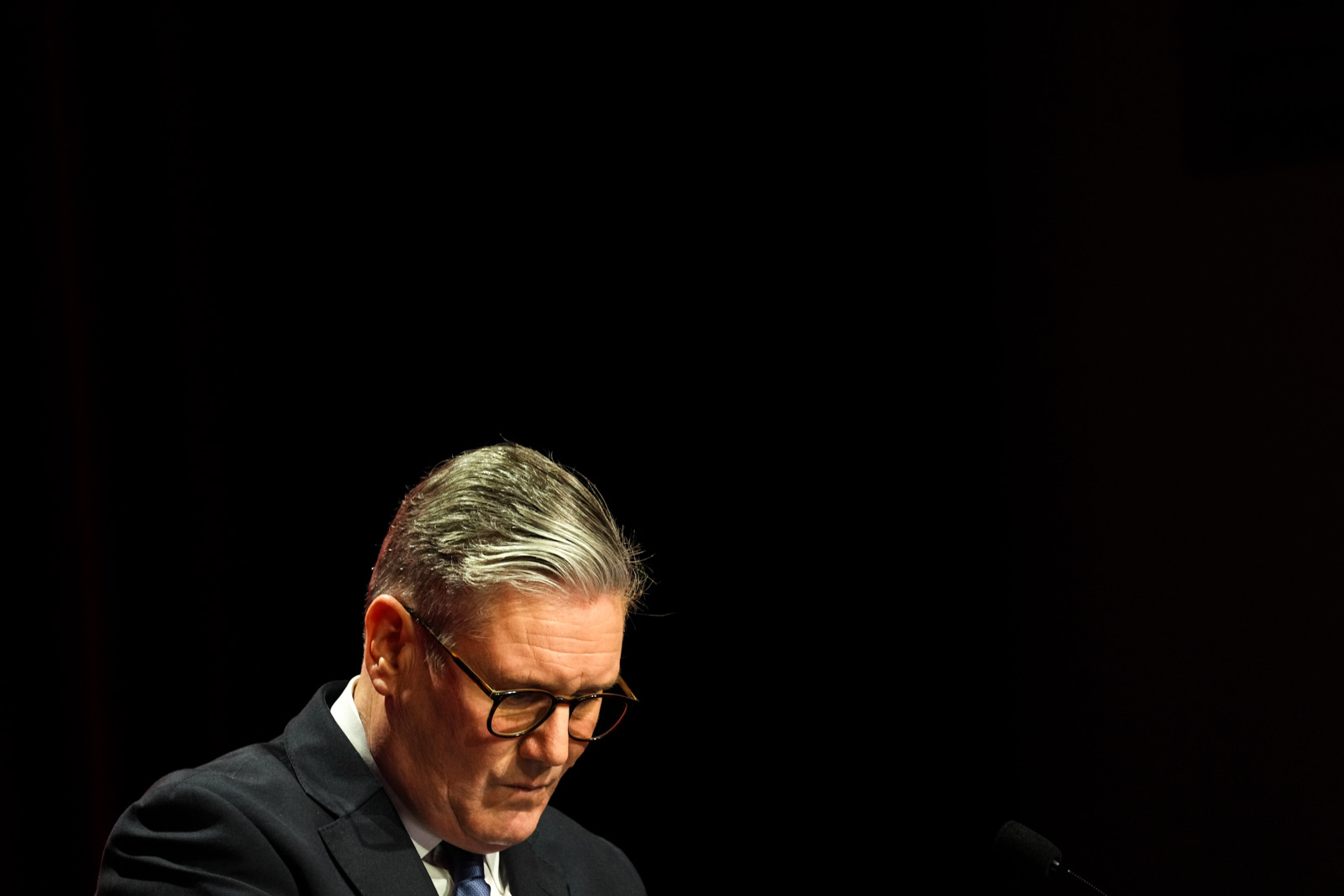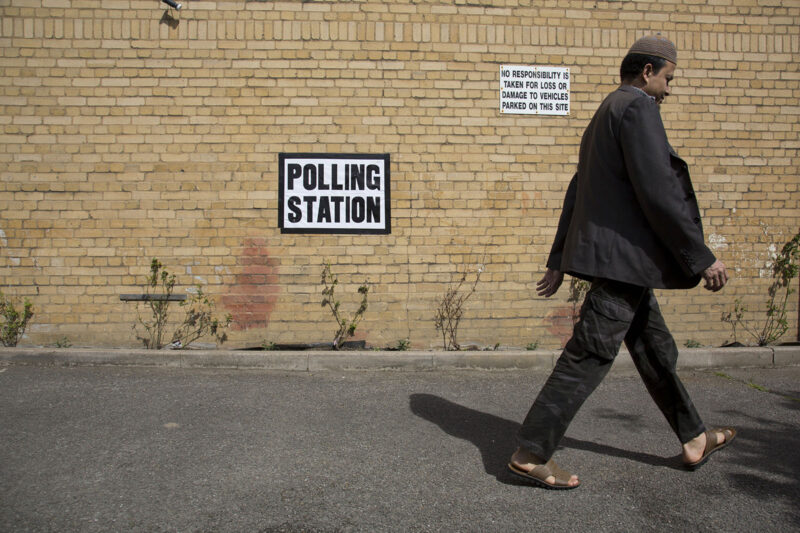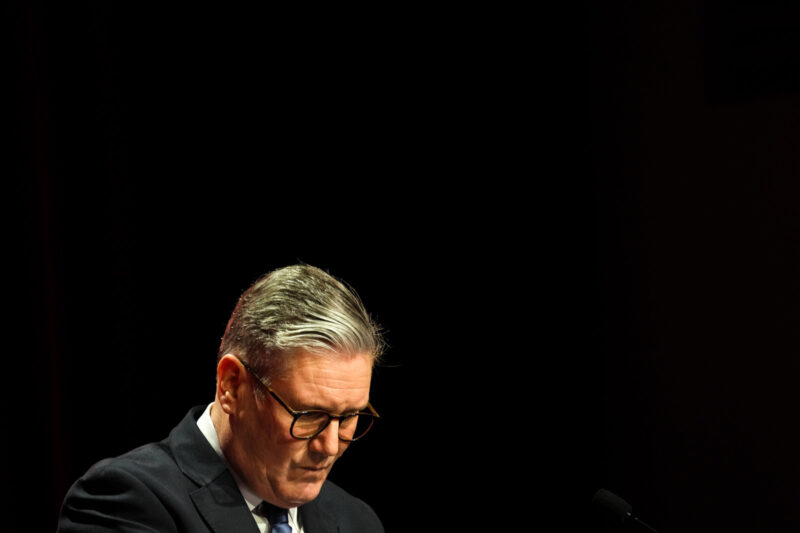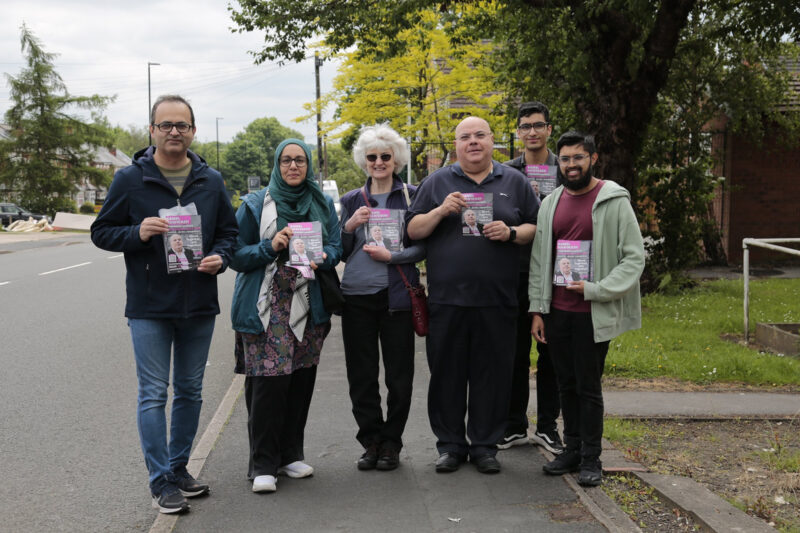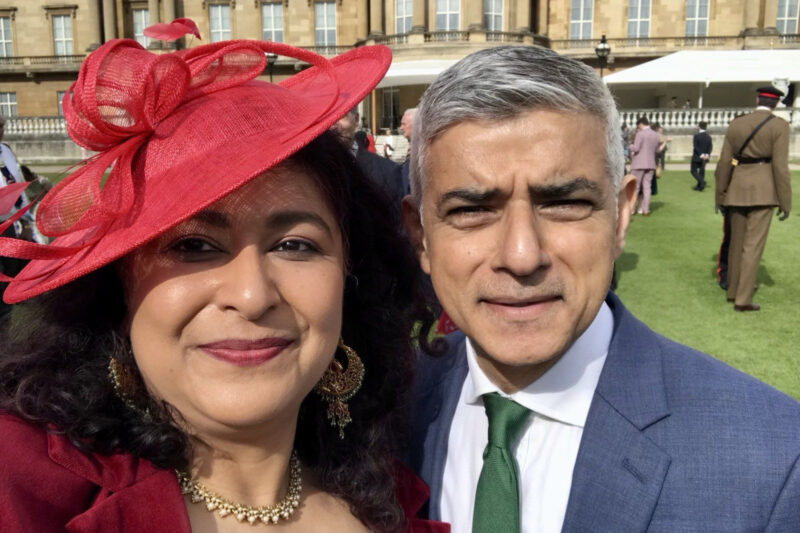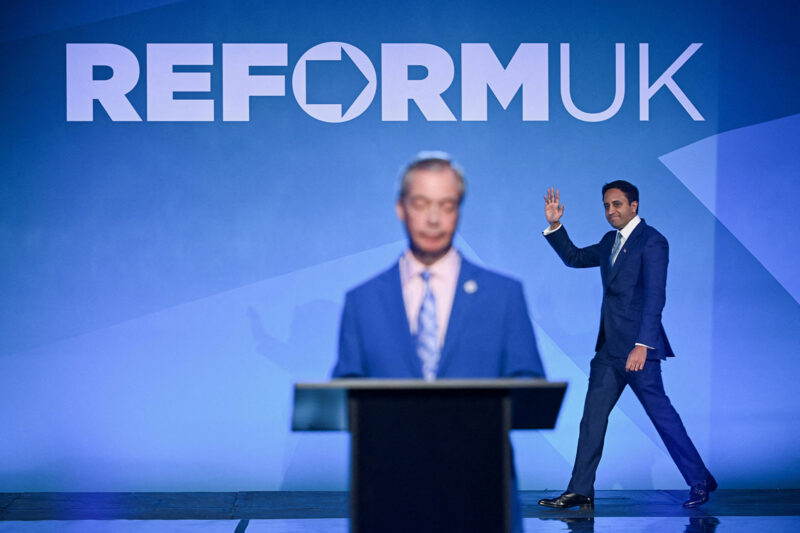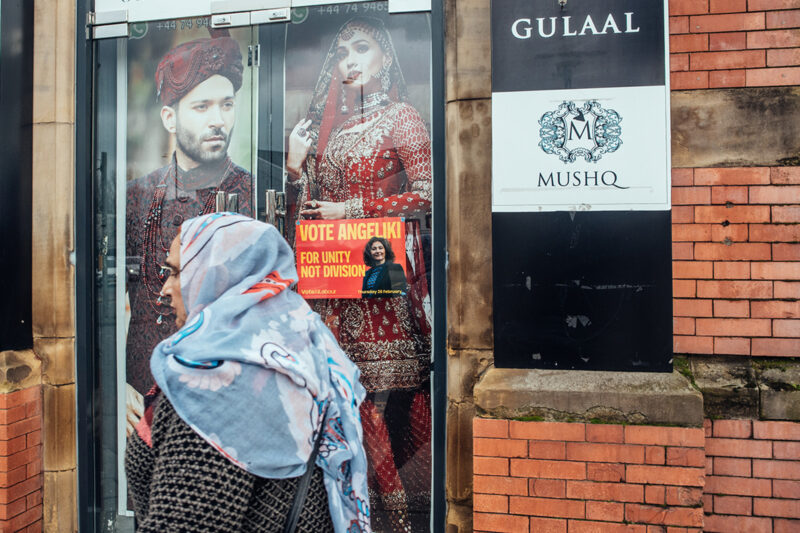The Hyphen guide to Shabana Mahmood
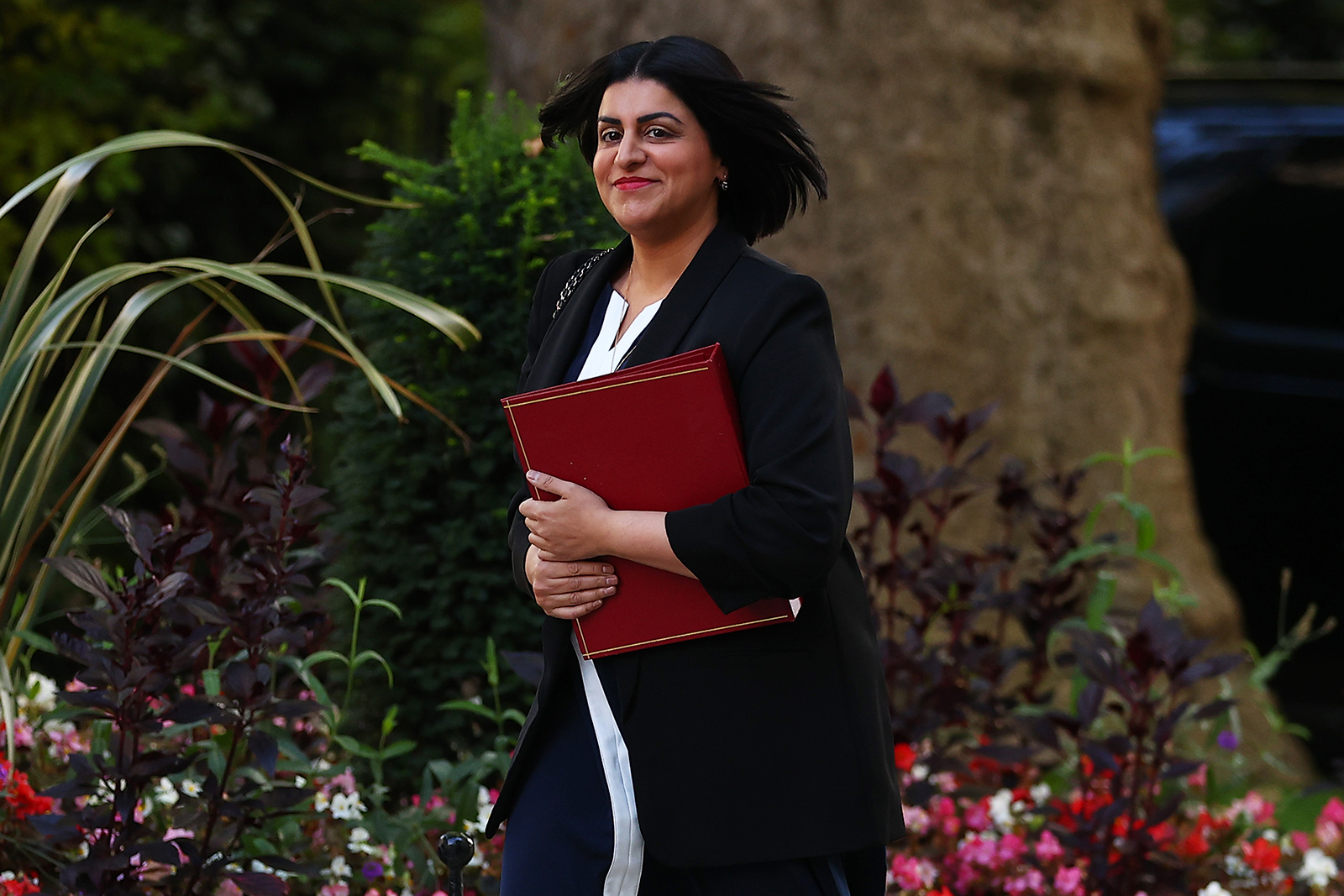
The MP for Birmingham Ladywood is the first Muslim woman to hold the post of home secretary
Shabana Mahmood was named as Britain’s new home secretary in early September, making her the first Muslim woman to hold the position.
Mahmood, 44, has served as the MP for Birmingham Ladywood since 2010. As a backbencher, she voted against stronger immigration laws and took pro-Palestine positions — but she has since faced criticism for abstaining on a key Gaza vote and siding with the government on anti-protest laws.
In the 2024 general election, she was challenged by an independent pro-Palestine candidate who slashed her majority by 88%. And in her first act as home secretary, she pledged to take tough action against illegal immigration.
Here’s what you need to know about the incoming home secretary.
How did Mahmood get started in politics?
Mahmood was born and brought up in Birmingham to Pakistani parents. She has credited her political drive to her father, a former chair of the local Labour party in Ladywood. In an interview with the Times, Mahmood said she had helped him campaign in council elections during her junior school years, and that she first spoke at a Labour party conference in her early 20s.
Mahmood told the Guardian that she attended an all-girls grammar school in Birmingham, before going on to study law at Lincoln College, Oxford University. Mahmood is a qualified barrister specialising in professional indemnity law.
She was elected to parliament at the age of 29 with 55.7% of the vote.
Raised as a Muslim, Mahmood has spoken openly about her faith and how it has influenced her politics.
“It shapes my life and my views and how I think about the world and my role and my place in it,” she told the Times in October 2024. “My faith calls me to public service. The fundamental values of my faith around decency and fairness, not wanting to live in a society where there’s conflict — those fundamental drivers I get from my faith.”
It was also due to her faith that she opposed the assisted dying bill, she said. “As a Muslim, I have an unshakeable belief in the sanctity and the value of human life,” she told the Times. “I don’t think that death is a service that the state should be offering.”
What are Mahmood’s political priorities?
Days after being named home secretary, Mahmood said that “securing” the UK’s borders was her “top priority”, and that the government was considering suspending visas for countries that refused to take back people who had been denied asylum in the UK.
In parliament, she has typically voted against a stricter asylum system and against stronger enforcement of immigration laws. However, in an interview with the Times last year, she said immigration was a “legitimate political issue for people to have concerns about”.
“I represent a very diverse constituency that’s 70% non-white, and immigration comes up as an issue that my voters who are Black or Asian and from other ethnic minorities want to talk about,” she said. “They have a sense that they have come to this country, as my family came to this country in the 60s, but they followed a set of rules and they played by those rules and if they hadn’t, those rules would have been enforced.”
Where does Mahmood stand on Palestine?
Once hugely popular among her constituents in Birmingham’s Ladywood seat, Mahmood has faced backlash for failing to challenge her party’s leadership on Gaza. During the 2024 general election, independent candidate Akhmed Yakoob, who centred his campaign on the issue, stood against her. Although Mahmood retained her seat, her majority plummeted from 28,582 in 2019 to just 3,421.
Mahmood took a stronger stance on Palestine in her early career. Perhaps most famously, in 2014, she was filmed protesting outside a Sainsbury’s branch in Birmingham, calling for it to stop selling goods from illegal Israeli settlements.
She voted in favour of recognising the state of Palestine in 2013 and, in 2018, called for immediate recognition of Palestinian statehood during a parliamentary debate. She calls herself a “a passionate and determined supporter of Palestinian rights” and, in January 2024, voted against a Conservative bill that would have made the Boycott, Divestment and Sanctions movement targeting Israel illegal.
However, MP War Crimes, a website that analyses politicians based on their position on Palestine and Israel, records Mahmood as “clearly anti-Palestinian” for abstaining from a number of key actions regarding Palestine.
In November 2023, the Scottish National party put forward an amendment to the King’s Speech calling for an immediate ceasefire in Gaza. While 56 Labour MPs defied the whip to vote in favour of the amendment, including 10 frontbenchers who stepped down so they could do so, Mahmood abstained from the vote.
In May 2024, Labour backbenchers Richard Burgon and Imran Hussain published a letter, signed by 105 MPs from across the political spectrum, calling on the government to back the International Criminal Court’s finding that Israel had committed “clear and obvious violations of international law in Gaza”. Mahmood was not one of the signatories.
On protest rights and rise of the far right
In July, Mahmood abstained from a vote in parliament that resulted in the proscription of protest group Palestine Action.
In the weeks that followed, hundreds of supporters gathered in London to protest the ban. Approximately 1,600 people have been arrested for attending demonstrations on 9 August and 6 September.
While the arrests have been criticised by pro-Palestine groups, in one of her first moves as home secretary, Mahmood threw her support behind the Metropolitan police.
Following protests on 6 September, Mahmood met with the force’s commissioner Mark Rowley. The Home Office said Mahmood “backed officers for arresting those who support the proscribed terrorist organisation Palestine Action”.
Mahmood wrote on X (formerly Twitter): “Supporting Palestine and supporting a proscribed terrorist group are not the same thing.”
On 13 September, an estimated 110,000-plus people gathered in London for a far-right rally led by Tommy Robinson and backed by Elon Musk. Far-right French politician Eric Zemmour was one of the key speakers, telling the crowd that people in France and the UK that they were being replaced by people “from the South and of Muslim culture”. “We are colonised by our former colonies,” he said.
While advocacy groups such as Hope Not Hate and Stand Up To Racism have denounced the rally as racist, in parliament on 15 September, Mahmood said “many had exercised the ancient right to peaceful protest”.
During the rally, 26 police officers were injured and 25 people were arrested. Of those arrested, Mahmood said they “do not represent who this country really is”.
“When a foreign billionaire calls on our citizens to fight against our ancient democracy I know this is met by the vast majority with a shake of the head,” she added.
“We are in truth a tolerant country. We are a diverse one too. You can be English with roots here that stretch back 1,000 years but you can also be English and look like me. The St George’s cross and the Union Jack belong to us all. They are symbols of unity, a kingdom united, and they must never be used to divide us.”
 Newsletter
Newsletter



